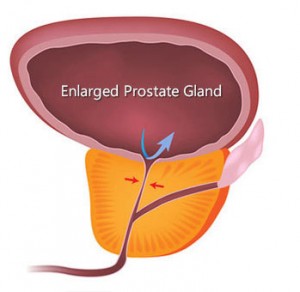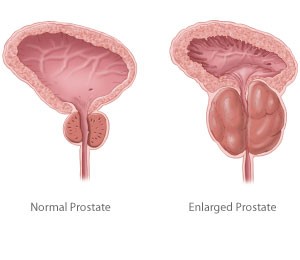Do you suffer from an enlarged prostate also known as benign prostatic hyperplasia? Also known as BPH, this is somewhat of a common condition and one that should involve a consultation and treatment with your doctor. The prostate gland is located around the urethra. This is the tube that moves urine from your bladder out of your body. In some situations, this gland can get larger. When this happens, it puts pressure on the urethra and even blocks it. This can create problems for men during urination.
What Causes BPH?

There are various causes of this condition and one of the first things your doctor will do is to determine what the cause is if possible. It’s important to know that this is generally a normal part of the aging process. It is brought on, in most cases, by changes in hormones that are flowing through the body and in cell growth. For many men, it just happens as they get older.
What Can BPH Cause in Men?
Though the condition will impact men in different ways, it is likely to cause some of the following circumstances:
It can make it harder for men to get a urine stream started. In addition to this, it can also be harder for men to completely stop urinating. They may dribble.
- It can create a weak stream of urine.
- Men may feel the need to urinate more often. This may even cause them to wake up in the middle of the night.
- You may feel as though your bladder is not fully empty even after urinating.
 In some cases, this condition can cause the bladder to become blocked. This makes it very difficult or even impossible for men to urinate. When this happens, it creates a backup that can damage the kidneys, create bladder stones or lead to bladder infections. That’s why it is important for men to seek out treatment from their doctors should they believe that they have this condition.
In some cases, this condition can cause the bladder to become blocked. This makes it very difficult or even impossible for men to urinate. When this happens, it creates a backup that can damage the kidneys, create bladder stones or lead to bladder infections. That’s why it is important for men to seek out treatment from their doctors should they believe that they have this condition.
If you believe you may be suffering from BPH or an enlarged prostate, talk to your doctor about your symptoms. It is important to notice and take action to treat this condition if present to prevent it from worsening and leading to complications in urinary system health.
Learn more about your condition and contact the leading NYC urologists today at 212-675-3186.
